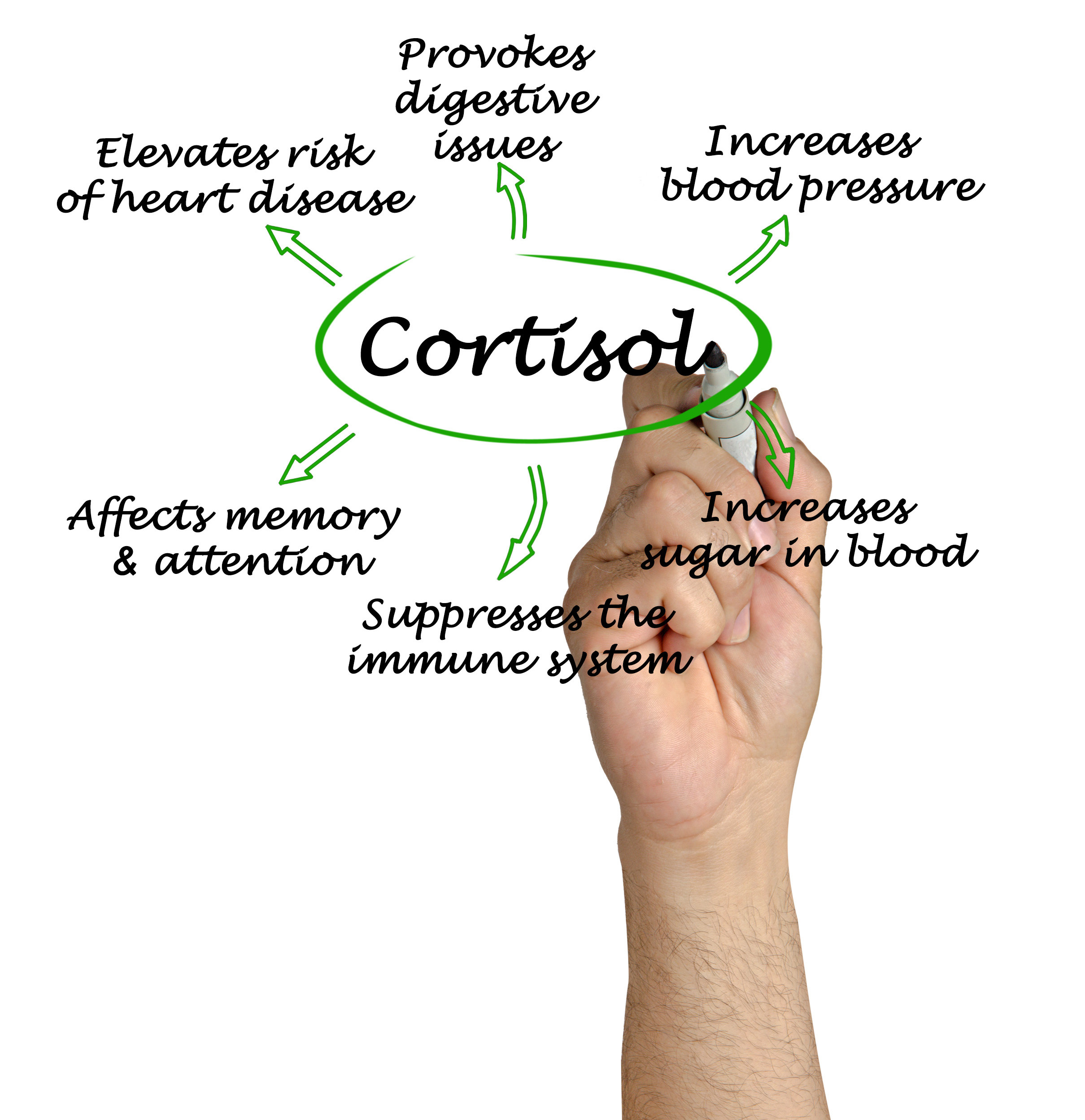Stress, Cortisol, and Weight Gain: Unlocking the Connection and Winning the Battle

Stress, Cortisol, and Weight Gain: Unlocking the Connection and Winning the Battle
Have you ever wondered why you tend to reach for those calorie-dense, high-fat snacks when you’re feeling stressed? Well, the answer may lie in a hormone called cortisol. Produced by the adrenal glands, cortisol is often referred to as the “stress hormone” due to its role in the body’s response to stress. In today’s fast-paced world, it’s not uncommon for cortisol levels to be higher than they should be, and this can have significant consequences on your weight and overall health.
In this article, we’ll delve into how excess cortisol can lead to fat storage and weight gain, and provide practical tips on how to reduce cortisol levels and keep your weight in check. So, let’s dive in!
The Cortisol-Weight Connection:
-
Fat distribution: High cortisol levels can contribute to increased fat storage in the abdominal area, which is particularly concerning due to the association between visceral fat and a higher risk of metabolic disorders such as insulin resistance and cardiovascular disease (Björntorp, 2001).
-
Metabolism: Cortisol is involved in gluconeogenesis, a process that breaks down protein and fat to generate glucose for energy. However, chronic exposure to elevated cortisol levels can lead to insulin resistance, making it more difficult for the body to process glucose and ultimately promoting fat storage (Pasquali et al., 2006).
-
Appetite regulation: Elevated cortisol levels can stimulate appetite and promote cravings for high-calorie, high-fat, and high-sugar foods, which can contribute to weight gain and fat storage (Epel et al., 2001).
Tips for Reducing Cortisol and Managing Weight:
-
Practice stress management: Incorporate relaxation techniques such as deep breathing, meditation, or yoga into your daily routine to help lower cortisol levels and manage stress more effectively.
-
Prioritize sleep: Aim for 7-9 hours of quality sleep per night, as poor sleep can contribute to increased cortisol levels and weight gain. Create a relaxing bedtime routine and maintain a consistent sleep schedule to support optimal sleep.
-
Engage in regular physical activity: Moderate exercise can help reduce cortisol levels, improve mood, and support weight management. Aim for at least 150 minutes of moderate-intensity aerobic activity per week, combined with muscle-strengthening activities on two or more days.
-
Eat a balanced diet: Opt for a diet rich in whole, unprocessed foods, including fruits, vegetables, lean proteins, and whole grains. Limit your intake of processed foods, high-sugar snacks, and excessive caffeine, as these can contribute to elevated cortisol levels and weight gain.
-
Foster social connections: Spending time with friends and family or engaging in group activities can help reduce stress and promote overall well-being, which can contribute to healthier cortisol levels and weight management.
Understanding the link between cortisol, stress, and weight gain is crucial in the battle against the bulge. By incorporating these practical tips into your daily routine, you can reduce cortisol levels, manage stress more effectively, and support a healthy weight. But why stop there? Take charge of your health and weight loss journey today by scheduling a consultation with our expert team. We’ll help you assess your cortisol levels and provide personalized guidance to optimize your well-being. Don’t wait any longer to unlock your full potential and achieve your weight loss goals. Click here to book your consultation now, and start your transformation with the support of our dedicated professionals.
References
Björntorp, P. (2001). Do stress reactions cause abdominal obesity and comorbidities? Obesity Reviews, 2(2), 73-86. https://doi.org/10.1046/j.1467-789x.2001.00027.x
Epel, E., Lapidus, R., McEwen, B., & Brownell, K. (2001). Stress may add bite to appetite in women: A laboratory study of stress-induced cortisol and eating behavior. Psychoneuroendocrinology, 26(1), 37-49. https://doi.org/10.1016/S0306-4530(00)00035-4
Pasquali, R., Vicennati, V., Cacciari, M., & Pagotto, U. (2006). The hypothalamic-pituitary-adrenal axis activity in obesity and the metabolic syndrome. Annals of the New York Academy of Sciences, 1083, 111-128. https://doi.org/10.1196/annals.1367.009

